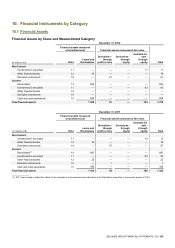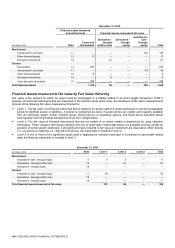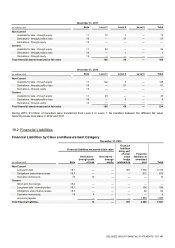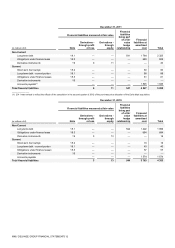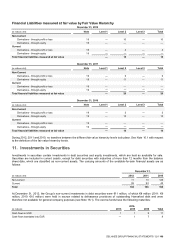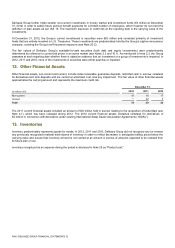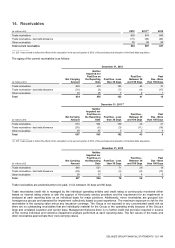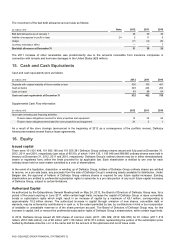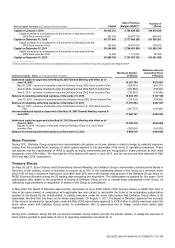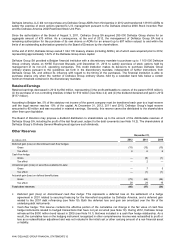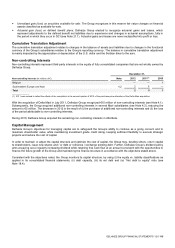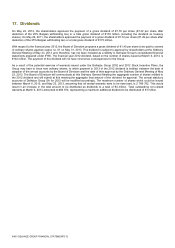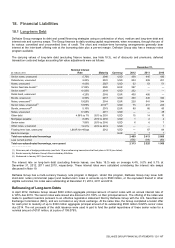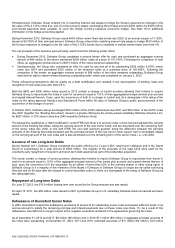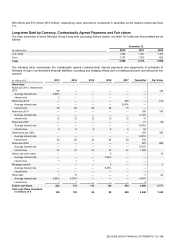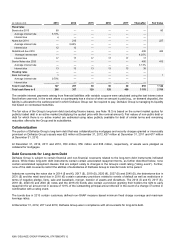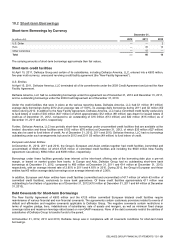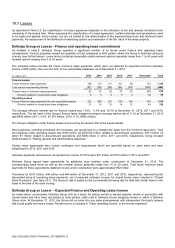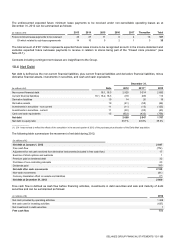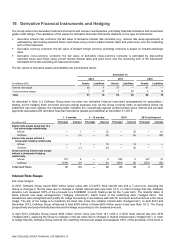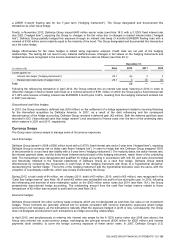Food Lion 2012 Annual Report Download - page 117
Download and view the complete annual report
Please find page 117 of the 2012 Food Lion annual report below. You can navigate through the pages in the report by either clicking on the pages listed below, or by using the keyword search tool below to find specific information within the annual report.
DELHAIZE GROUP FINANCIAL STATEMENTS ’12 // 115
Unrealized gain (loss) on securities available for sale: The Group recognizes in this reserve fair value changes on financial
assets classified as available-for-sale.
Actuarial gain (loss) on defined benefit plans: Delhaize Group elected to recognize actuarial gains and losses, which
represent adjustments to the defined benefit net liabilities due to experience and changes in actuarial assumptions, fully in
the period in which they occur in OCI (see Note 21.1). Actuarial gains and losses are never reclassified into profit or loss.
Cumulative Translation Adjustment
The cumulative translation adjustment relates to changes in the balance of assets and liabilities due to changes in the functional
currency of the Group’s subsidiaries relative to the Group’s reporting currency. The balance in cumulative translation adjustment
is mainly impacted by the appreciation or depreciation of the U.S. dollar and the Serbian dinar to the euro.
Non-controlling Interests
Non-controlling interests represent third-party interests in the equity of fully consolidated companies that are not wholly owned by
Delhaize Group.
Non-controlling interests (in millions of €)
December 31,
Note
2012
2011(1)
2010
Belgium
—
—
1
Southeastern Europe and Asia
4.2
2
5
—
Total
2
5
1
_______________
(1) 2011 was revised to reflect the effects of the completion in the second quarter of 2012 of the purchase price allocation of the Delta Maxi acquisition.
With the acquisition of Delta Maxi in July 2011, Delhaize Group recognized €15 million of non-controlling interests (see Note 4.1).
Subsequently, the Group acquired additional non-controlling interests in several Maxi subsidiaries (see Note 4.2), reducing the
amount to €5 million. The decrease in 2012 is the result of (i) the purchase of additional non-controlling interests and (ii) the loss
of the period attributable to non-controlling interests.
During 2010, Delhaize Group acquired the remaining non-controlling interests in Alfa Beta.
Capital Management
Delhaize Group’s objectives for managing capital are to safeguard the Group’s ability to continue as a going concern and to
maximize shareholder value, while maintaining investment grade credit rating, keeping sufficient flexibility to execute strategic
projects and reduce the cost of capital.
In order to maintain or adjust the capital structure and optimize the cost of capital, the Group may, besides others, return capital
to shareholders, issue new shares and / or debt or refinance / exchange existing debt. Further, Delhaize Group’s dividend policy
aims at paying out a regularly increasing dividend while retaining free cash flow at an amount consistent with the opportunities to
finance the future growth of the Group and maintaining the finance structure in accordance with the objectives stated above.
Consistent with the objectives noted, the Group monitors its capital structure, by using (i) the equity vs. liability classifications as
applied in its consolidated financial statements, (ii) debt capacity, (iii) its net debt and (iv) “Net debt to equity” ratio (see
Note 18.4).


